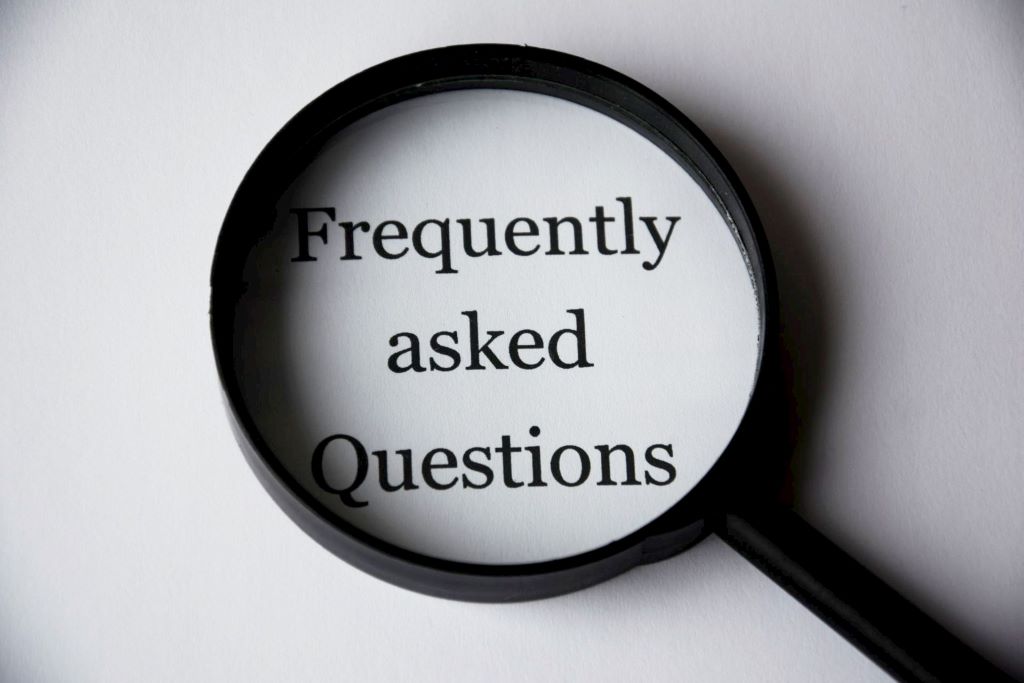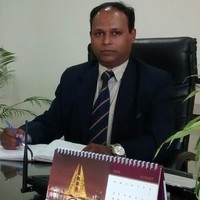Understand Managerial Round Interview Questions
Managerial round interview questions can be difficult to answer. When candidates are interviewed for a job, a manager considers a number of factors to decide whether the individual is a suitable match for the position and the business.
You will face obstacles on the way to a successful management round interview, but with the correct interview preparation and a dash of confidence, you can handle any question that is thrown your way. This article is specifically written for you to help you ace your interview by understanding the surprises of the managerial round interview questions. Let’s examine some of the most typical managerial round interview questions and discuss techniques for coming up with impressive answers.
You’ll be prepared to handle any interview situation with grace and assurance if you learn the skill of replying to these crucial questions and demonstrating your expertise. You will always have realness, readiness, and a positive outlook by your side. With your newly learned information on managerial round interview questions and increased preparedness, proceed to dominate your interview.

Managerial Round Interview Questions Assesses What?
Let’s examine some of the most typical managerial round interview questions and discuss techniques for coming up with impressive answers A manager round interview questions will assess the following significant areas:
1. Relevance of Skills and Experience:
The manager will evaluate if the applicant’s abilities, credentials, and experience match those needed for the position. They’ll be on the lookout for a history of projects and accomplishments that are pertinent.
Relevance of Experience and Skills Interview Questions:
- Can you give an instance of a project where you used your [particular talent] to produce a noteworthy result?
- How has your prior work experience as a [previous job title] equipped you for the duties of this position?
- What technical abilities do you have that exactly match the criteria listed in the job description?
2. Fit Culturally:
Managers frequently take the candidate’s ideals, working style, and personality into account when determining if they fit the corporate culture. Examining the candidate’s compatibility with the existing team is part of this process
Fit Culturally Interview Questions:
- What would you say about the team dynamic and workplace you prefer?
- Can you give an example of a time when you showed a commitment to the principles of your former team or employer?
- What about our corporate culture drew you in, and what do you like best about it?
3. Problem-Solving and Decision-Making:
Managers are interested in a candidate’s aptitude for situational analysis, wise judgment, and problem-solving. They could inquire about occasions in the past where the applicant had to overcome difficulties.
Decision-Making and Problem-Solving Interview Questions:
- Describe a difficult circumstance you dealt with at work and the methods you took to deal with it.
- Can you give an instance of a decision you took under duress and describe how it affected the result?
- How do you handle complex issues, and what methods do you employ to make wise decisions?
4. Leadership and Management Skills:
The manager will assess the candidate’s leadership and management skills if they are applying for managerial positions. This entails evaluating their capacity for teamwork, communication skills, and prior experience leading and inspiring others.
Management and Leadership Capabilities Interview Questions:
- Describe a time when you successfully led a team to accomplish a certain objective. What methods of leadership did you use?
- How do you resolve disputes or conflicts among team members while ensuring a successful outcome?
- Could you describe a time when you mentored or guided a team member to improve their abilities and output?
5. Flexibility and Adaptability:
The manager might ask the candidate how well they can adjust to new situations, technologies, or priorities. They’ll want to make sure the applicant can succeed in a fast-paced workplace.
Flexibility and Adaptability Interview Questions:
- Describe a circumstance in which you had to adjust swiftly to unforeseen changes. How did you handle the changeover?
- How do you stay up to date on market trends and technological advancements to continue being adaptive at work?
- Can you give an instance of when you had to change priorities and how you handled the situation well?
6.Communication Skills:
The manager will assess the candidate’s ability to communicate clearly in terms of speaking, writing, reading, & listen attentively. Good Communication skills are a must to work with coworkers, subordinates, and superiors.
Skills in Communication Interview Questions:
- When working with various stakeholders, including team members, clients, and executives, how do you modify your communication style?
- Can you describe a time when you successfully explained complicated material to non-technical people?
- What tactics do you employ during team conversations to guarantee attentive listening and comprehension?
7.Managing time and tasks:
Managers will want to see how the candidate prioritizes tasks, organizes their work, and manages their time to ensure productivity and meet deadlines.
Managing time and tasks Interview Questions:
- Describe a project in which you have many things to complete and a short timeframe.
- What plan did you make for managing your time for successful task completion?
- What tools or methods do you regularly employ to keep organized and prioritize your tasks?
- Can you give an example of a time when you had to modify your plans without sacrificing quality to make room for unforeseen tasks?
8.Technical Proficiency:
Depending on the position, the manager may evaluate the applicant’s technical abilities and familiarity with any necessary software, instruments, or machinery.
Technical Mastery Interview Questions:
- What level of expertise do you think you have with certain software/tool? Can you give an example of a success that highlights your skills?
- Can you give an example of a technical difficulty you encountered and how you overcame it to successfully complete a project?
- How do you retain your technical skills by staying current with developments in your field?
9.Initiative and Proactivity:
Candidates who take the initiative to seek out areas for growth or accept new tasks are frequently looked at favorably.
Proactivity and initiative Interview Questions:
- Give an instance where you recognized a process’s inefficiency and took the initiative to make it more efficient.
- How do you look for chances to advance professionally in your current position?
- Can you describe a time when you volunteered for a task beyond the scope of your employment to help your team succeed?
10.Collaboration & Teamwork:
It’s critical to have the capacity to work well with others and make constructive contributions to a team. The manager might inquire about the applicant’s prior expertise in handling dispute resolution and teamwork.
Group effort and cooperation Interview Questions:
- When collaborating with coworkers that have different backgrounds and skill sets, how can you ensure efficient communication?
- Give an example of a time when you had to arbitrate a dispute between teammates. How did you manage to find a suitable solution?
- Can you give an example of a time when you used your special abilities to help a team succeed?
11.Conflict Resolution:
Managers may ask candidates how they handle disagreements or conflicts with teammates as well as outside parties.
Resolution of Conflict Interview Questions:
- Tell me about an instance when you had a conflict with a teammate or colleague. How did you resolve conflicts while preserving a good rapport?
- How do you respond when there are conflicting viewpoints during a collaborative project? Give an instance.
- Can you describe a time when you handled a challenging talk with a coworker well and got a good result?
12.Motivation & Enthusiasm:
Managers will evaluate a candidate’s motivation and enthusiasm for the position and the organization. They’ll be on the lookout for sincere excitement and a desire to help the group succeed.
Enthusiasm and Motivation Interview Questions:
- What most interests you about this position and our business? What role do you see yourself playing in our success?
- How do you stay enthused and motivated while working on difficult or monotonous tasks?
- Can you give an example of a moment when your sincere passion helped your team achieve successful project results?
13.Long-Term Potential:
Managers frequently consider a candidate’s potential for advancement within the organization. They may inquire about the applicant’s aims and goals for their career.
Long-Term Prospects Interview Questions:
- How does this position fit with your professional aspirations? Where you find yourself in the coming four years?
- What features of this business and this position give you hope that you can develop and advance there?
- Could you explain how you see this role fitting into your long-term career goals?
14.Professional and ethical behavior
Employers prefer applicants that conduct themselves in an ethical and professional manner. The candidate’s approach to moral conundrums and dedication to upholding high standards of conduct may be discussed by the management.
Professional and ethical behavior Interview Questions:
- How do you respond to circumstances where corporate policies or procedures may conflict with your personal values?
- Can you give an instance of a time when you had a moral conundrum at work and how you handled it?
- How can you be certain that your choices and actions adhere to a high level of ethical behavior?
15.Questions & Curiosity:
A candidate’s questions during an interview can give insight into how well-prepared they are, how interested they are in the position and the firm, and how eager they are to learn more.
Curiosity and Questions Interview Questions:
- What particular facets of our company’s mission and objectives interest you, and how do you intend to support them?
- What inquiries do you have about our business and the position that show your interest and curiosity?
- How do you conduct your homework and get ready for interviews so that you have a thorough understanding of the business and its sector?
Conclusion:
Although every manager may have a different interviewing strategy, these categories give a thorough summary of what a manager might look for when interviewing applicants for a job. Throughout the interview process, it’s critical for candidates to highlight their skills, experiences, and fit for the position and business

The author has served as Director of the Management Institute and Head of the Training and Placement vertical. The author has rich experience in training candidates for job interviews. The author is a certified Interviewing Professional, Psychometric Testing Professional, Instructional Designer, and L&D Professional. He has authored various research papers and received the best research paper award.
